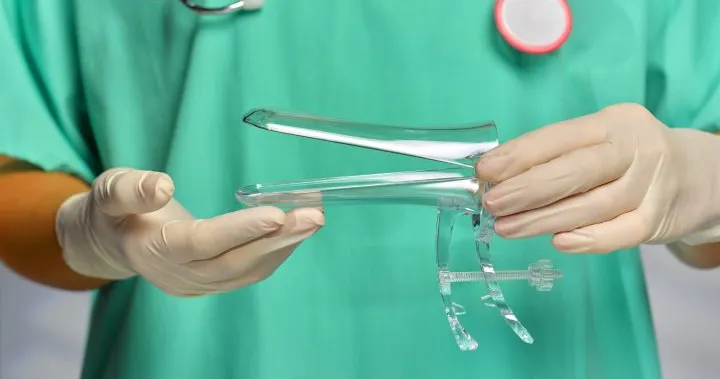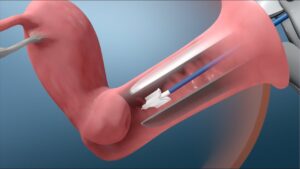A Pap smear, also known as a Pap test, is a medical procedure that helps doctors check for abnormal cells in the cervix, which is the lower part of the uterus. The cervix connects the uterus to the vagina, and keeping it healthy is very important. The Pap smear is one of the best ways to make sure everything is okay with the cervix.
Why is a Pap Smear Important?
A Pap smear is important because it helps detect cervical cancer early. Cervical cancer is a type of cancer that happens in the cells of the cervix. If detected early, it is much easier to treat. In fact, many women who have regular Pap smears rarely develop cervical cancer because the test catches any abnormal cells before they turn into cancer. The Pap smear can also help identify other infections and problems with the cervix that might need attention.
Who Should Get a Pap Smear?
Doctors usually recommend that women start getting Pap smears at the age of 21. After that, it’s advised to have a Pap smear every three years if the results are normal. However, if the test shows something unusual, your doctor might ask you to come back sooner for another test. Women who are over 30 can sometimes have a Pap smear every five years if they also get an HPV test at the same time. HPV, or Human Papillomavirus, is a virus that can cause cervical cancer. Women who are over 65 and have had normal Pap smears for many years may not need to continue getting the test.
How is a Pap Smear Done?
Getting a Pap smear is usually quick and simple. Here’s how it works:
- Preparation: You’ll be asked to lie down on an exam table. The doctor will ask you to place your feet in stirrups, which are little holders that keep your feet in place.
- Speculum Insertion: The doctor will then gently insert a speculum into your vagina. A speculum is a small tool that helps open the vagina a little so the doctor can see the cervix.
- Cell Collection: Using a soft brush or a small spatula, the doctor will collect a few cells from the cervix. This part might feel a bit uncomfortable, but it usually doesn’t hurt.
- After the Test: The collected cells are sent to a lab where they are checked for anything abnormal. You can usually go back to your regular activities right after the test.
What Do the Results Mean?
When you get your Pap smear results, they will fall into one of a few categories:
- Normal: This means that no abnormal cells were found. You won’t need another Pap smear for a few years, depending on your age and health history.
- Unclear: Sometimes, the results aren’t clear, and the lab may ask for another sample. This doesn’t necessarily mean something is wrong; it just means they need a better look.
- Abnormal: If your results are abnormal, it means that the lab found some cells that don’t look quite right. This doesn’t mean you have cancer, but it does mean you’ll need further testing. Your doctor might suggest another Pap smear, an HPV test, or a colposcopy. A colposcopy is a special exam where the doctor looks at the cervix more closely with a magnifying tool.
What Happens if Abnormal Cells Are Found?
If your Pap smear shows abnormal cells, don’t panic. There are different types of abnormal cells, and many of them are not serious. Sometimes, the cells will go back to normal on their own, especially if they are only slightly abnormal. However, if the cells look more concerning, your doctor might recommend treatment to remove them before they have a chance to develop into cancer.
How to Prepare for a Pap Smear
To get the best results from your Pap smear, there are a few things you can do to prepare:
- Schedule the Test for the Right Time: It’s best to schedule your Pap smear when you’re not on your period. Blood can make the test results harder to read.
- Avoid Certain Activities: For two days before the test, avoid having sex, using tampons, or putting anything in your vagina, like creams or medications. These can affect the results of the test.
- Relax: It’s normal to feel a little nervous, but try to relax. The test is usually over in just a few minutes, and the more relaxed you are, the easier it will be.
Common Myths About Pap Smears
There are a lot of myths out there about Pap smears, so let’s clear up a few:
- Myth 1: Pap smears are painful.
The truth is, most women find Pap smears to be only slightly uncomfortable. The test doesn’t take long, and any discomfort is usually mild. - Myth 2: You don’t need a Pap smear if you’re not sexually active.
Even if you’re not sexually active, you still need to get Pap smears. HPV, the virus that can cause cervical cancer, can be spread through other kinds of intimate contact, not just sex. - Myth 3: A Pap smear can detect all types of cancer.
A Pap smear is specifically designed to detect cervical cancer. It doesn’t check for other types of cancer, like ovarian or uterine cancer.
Why You Shouldn’t Skip Your Pap Smear
Skipping a Pap smear might seem tempting, especially if you feel fine and healthy. But it’s important not to skip this test. Cervical cancer often doesn’t cause symptoms until it’s more advanced, so the only way to catch it early is through a Pap smear. By getting regular Pap smears, you’re taking a big step towards protecting your health.
What if You’re Scared of Getting a Pap Smear?
It’s completely normal to feel scared or nervous about getting a Pap smear, especially if it’s your first time. Here are some tips to help you feel more comfortable:
- Talk to Your Doctor: Let your doctor know if you’re feeling anxious. They can explain the procedure in more detail and go slowly to help you feel more at ease.
- Bring a Friend: If it helps, you can bring a friend or family member with you to the appointment. Just having someone there can make a big difference.
- Focus on Your Breathing: Deep breathing can help you relax during the test. Try to take slow, deep breaths and focus on staying calm.
- Remember It’s Quick: The actual test usually only takes a few minutes. Before you know it, it will be over and you’ll be on your way.
What Happens After a Pap Smear?
After your Pap smear, you might have a little spotting or light bleeding, especially if it’s your first time or if you’re close to your period. This is normal and shouldn’t last long. You can go back to your regular activities right away. Your doctor will usually let you know when to expect your results, which can take a few days to a week.
When Should You See a Doctor About Your Pap Smear?
If you notice any unusual symptoms after your Pap smear, such as heavy bleeding, severe pain, or a fever, you should contact your doctor right away. These are very rare, but it’s always better to be safe and get checked out if something doesn’t feel right.
The Role of HPV in Cervical Cancer
HPV, or Human Papillomavirus, plays a big role in cervical cancer. Most cervical cancers are caused by HPV, which is a very common virus that many people will get at some point in their lives. There are many types of HPV, but only a few cause cervical cancer. Getting a Pap smear regularly helps catch any problems caused by HPV before they turn into something more serious. There’s also an HPV vaccine available, which can protect against the types of HPV that are most likely to cause cervical cancer.
The Connection Between Pap Smears and Overall Women’s Health
Pap smears are just one part of taking care of your overall health as a woman. Regular visits to your doctor, staying informed about your health, and taking care of your body are all important steps. By keeping up with your Pap smears, you’re not only protecting your cervical health but also taking control of your health in general.
Conclusion: Take Charge of Your Health with Regular Pap Smears
In conclusion, a Pap smear is a simple, quick, and important test that can save lives by detecting cervical cancer early. It’s recommended for all women starting at age 21 and should be done regularly according to your doctor’s advice. Don’t let fear or nervousness keep you from getting this important test. Remember, taking care of your health is one of the best things you can do for yourself, and getting regular Pap smears is a key part of that. To read more, please visit: healthlinemedia.net













